On this page
When Jerome Kavanagh Poutama faced severe mental health challenges in his twenties, it wasn’t so much the medication but the music of his tīpuna, recreated by taonga pūoro, that really helped to heal his soul.
Now with his partner Ruiha Turner, Jerome is bringing the healing properties of taonga pūoro – traditional Māori music instruments – into kura and marae and into hearts and minds, all over Aotearoa through their programme Oro Atua: Taonga Pūoro as Rongoā.
Oro Atua is delivered through wānanga, with participants learning about and making their own taonga pūoro as a way to centre themselves, relax and focus, before sharing that knowledge with whānau. A total of 322 whānau have participated in 16 wānanga held so far, with more to come this year.
Supported by Te Aka Whai Ora, they now pass on knowledge that was first passed to Jerome as an eight year-old. “It was my Nan who first taught me about them, I was eight when she introduced me to one of the instruments,” says Jerome (Te Tini a Haa, Ngati Matakore, Mokai Patea, Ngati Rangi and Whanganui).
“In my twenties I went through mental health challenges and went into the mental health system, I was medicated and feeling really low. One of my older uncles took me back into the bush and that’s where I started my journey back into that side of life, and picked up taonga pūoro again.
“For a year I shut myself away and absorbed the learning, which helped me with my mental health. Once I had enough instruments and had learned enough to share, I started going around kōhanga and kura in the central plateau area. I didn’t realise at the time it was rongoā for me, I was just doing something that felt good to me.”
Rongoā Māori is a holistic and cultural healing practice derived from mātauranga Māori. Oro Atua recreates the sound vibrations of nature, reconnecting whānau to the natural world and providing a calming atmosphere to help participants address their own challenges.
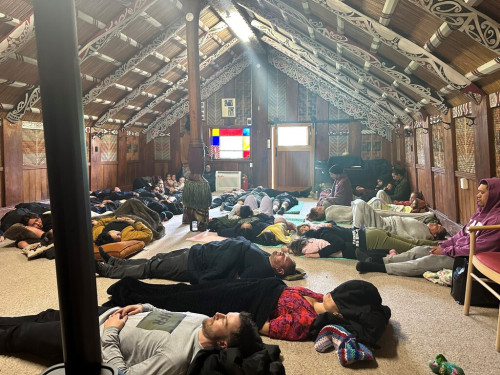
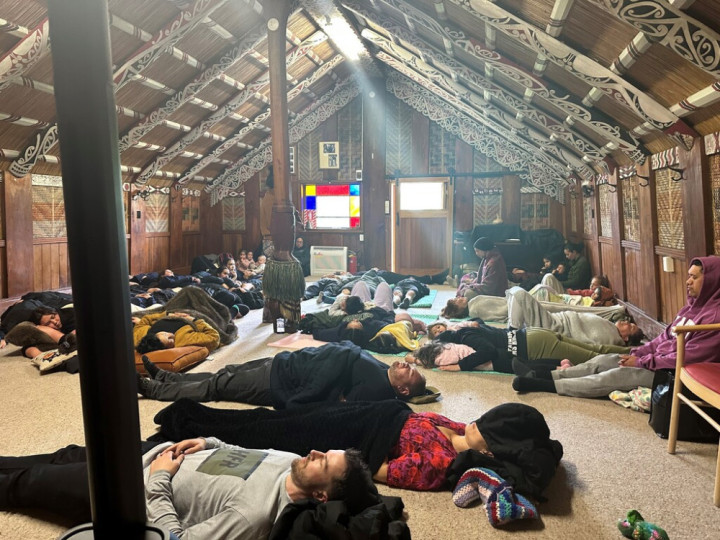
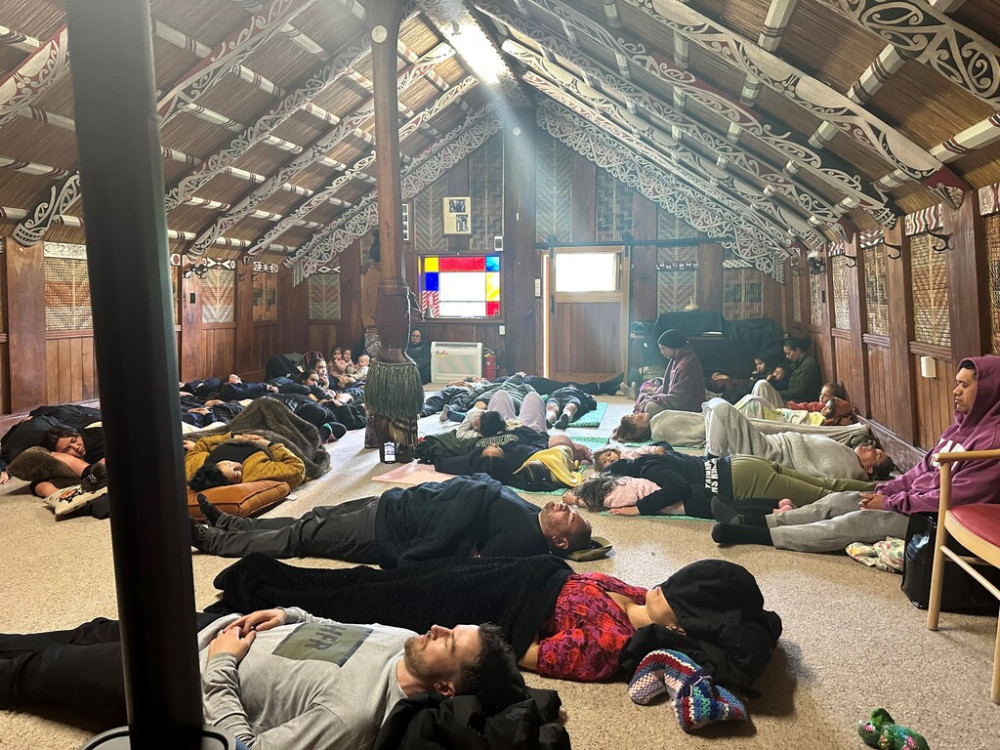
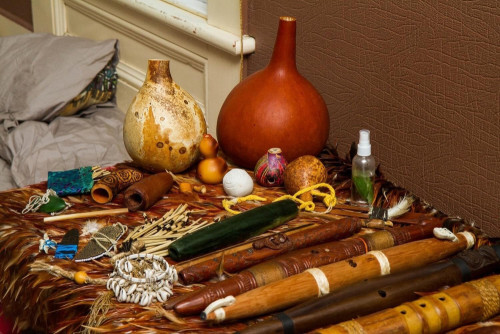
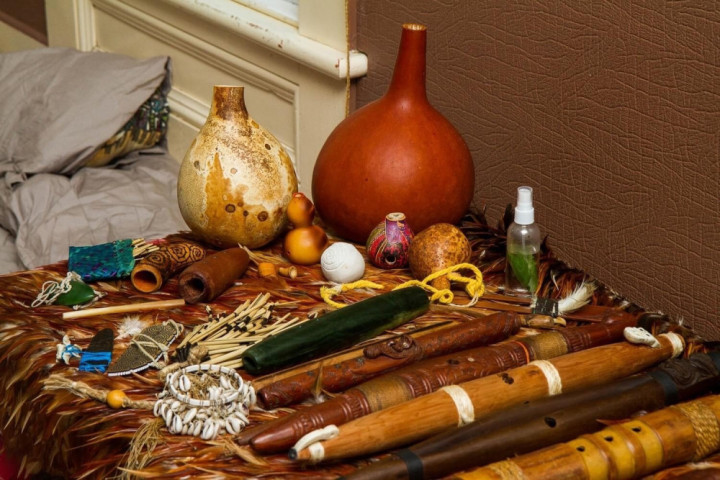
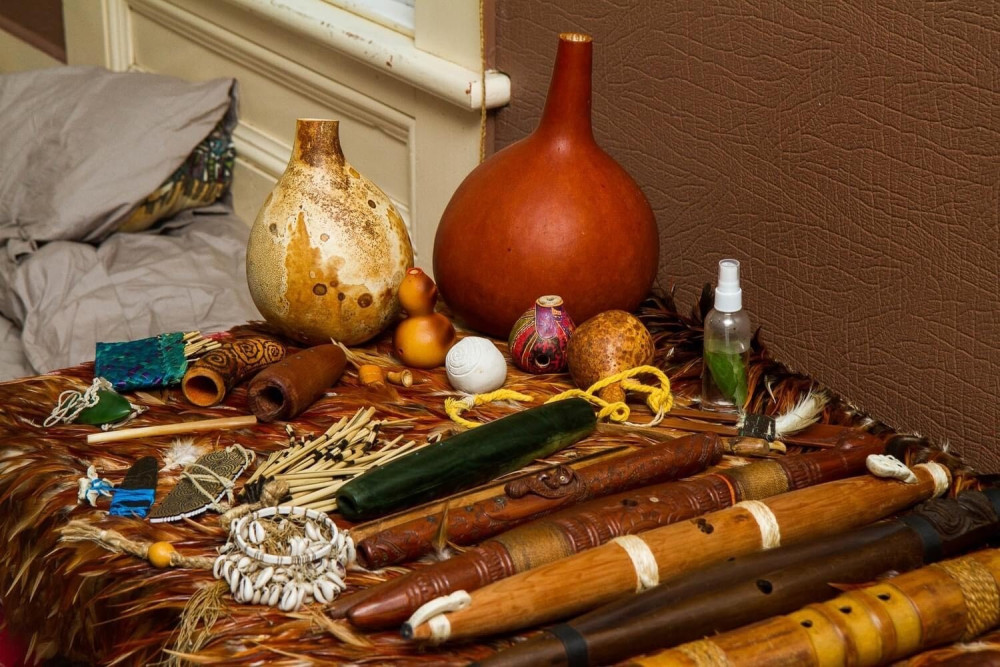
Said one participant at Oro Atua, “I [had] felt very angry and disturbed. After the session I feel very peaceful and my heart is very calm. I haven't felt this good in a longtime.”
Said another, “I didn't realise beforehand how much [stress] I had been holding on to, the session allowed me to release all of this energy in a safe way.”
And for Ruiha (Ngati Pahauwera and Ngati Kahungunu ki Te Wairoa), the potency of taonga pūoro was felt at home with their pēpē Tāwhirirangi, who is now nearly one year-old. “He would be all bunched up from wind and nothing would soothe him, but the porotiti would soothe him and help coax a burp out of him!
“Really, delivering the potency of taonga tuku iho, nurturing the knowledge handed down to us, we’re just scratching the surface of bringing all this old knowledge into the modern world. The cool thing at our wānanga, you can see the effect of the taonga pūoro on people, they hold their own potency.”
The support of Te Aka Whai Ora funding has helped Jerome and Ruiha in their effort to revitalise the artform of taonga puoro and to share the mātauranga through wānanga with whānau, supporting their access to the healing properties it provides.
“Our tūpuna used the instruments primarily for rongoā, then ceremony, and lastly for entertainment,” says Jerome. “But taonga pūoro has been revived in the reverse order – entertainment first and then for pōwhiri and tangihana, but what’s really exciting now is that we’re reviving them as a medicine for our people. That’s been awesome to turn on that light for everybody.”
Te Aka Whai Ora Maiaka Mātauranga DCE Mātauranga Māori, Kingi Kiriona says rongoā is a key pathway to good health outcomes for Māori and non-Māori and can benefit everyone in New Zealand.
“Good science and good healthcare have always drawn on a diversity of types and sources of evidence – and valuing mātauranga Māori is part of that. As well as being curative, rongoā is a preventative health measure and should start when you’re feeling well. Rongoā is about maintaining your wellness and not waiting until you’re sick.
“The diverse and innovative models of care supported by Te Aka Whai Ora are open to all New Zealanders where available in their local communities – extending the current reach of the health system, expanding choice of services and adapting the way care is delivered,” says Kingi.
More information
Television’s The Hui feature on taonga pūoro practitioners Jerome Kavanagh and Ruiha Turner, who are dedicating their lives to normalise the use of these traditional instruments: Watch here. (external link)
See the different styles of porotiti and hear the sound it makes at this webpage. (external link)